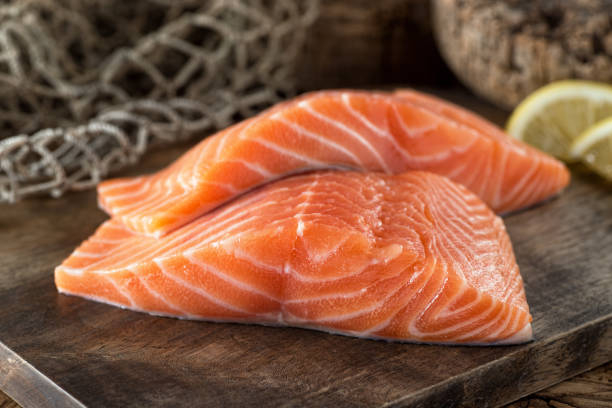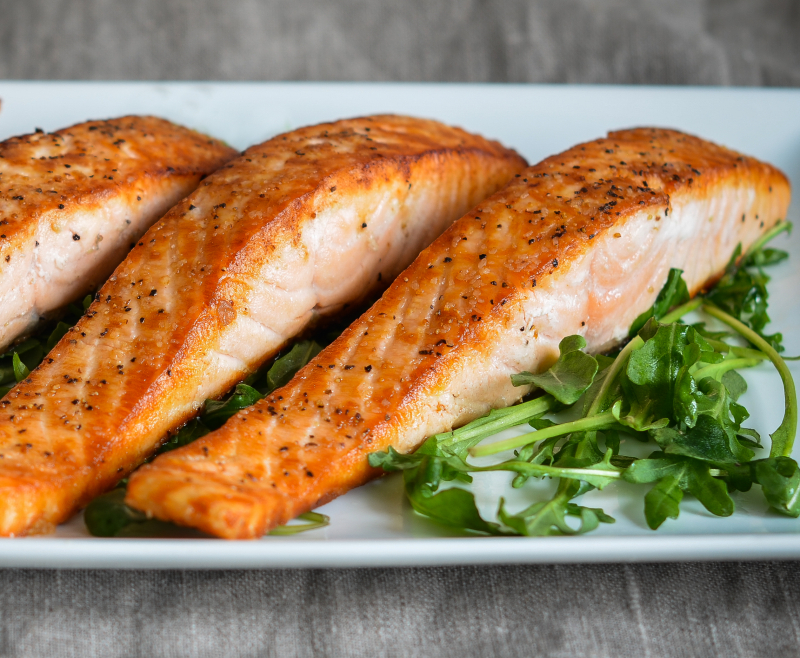Salmon

Salmon is a nutrient-dense fish. Each serving is low in calories but high in protein, omega-3 fatty acids, and essential vitamins and minerals such as B12, B6, niacin, selenium, and magnesium.
Salmon is a popular fatty fish that is a good source of vitamin D. According to the Food Composition Database of the United States Department of Agriculture (USDA), one 3.5-ounce (100-gram) serving of farmed Atlantic salmon contains 526 IU of vitamin D or 66% of the daily value. The difference between farmed and wild salmon can be significant. Wild-caught salmon has an average of 988 IU of vitamin D per 3.5-ounce (100-gram) serving, or 124% of the daily value. In certain studies, wild salmon has been found to contain even greater amounts of IU, up to 1,300 IU per meal. Farmed salmon, on the other hand, only has 25% of that amount. Even yet, one serving of farmed salmon contains roughly 250 IU of vitamin D or 32% of the daily value.











